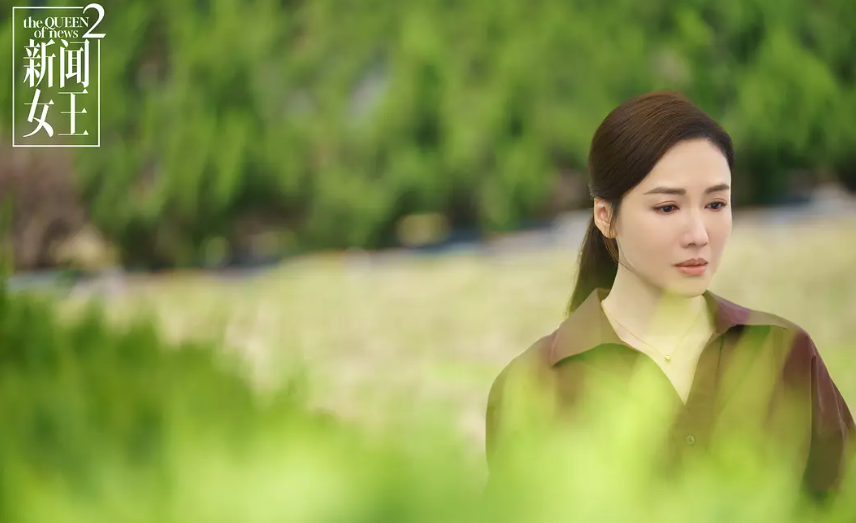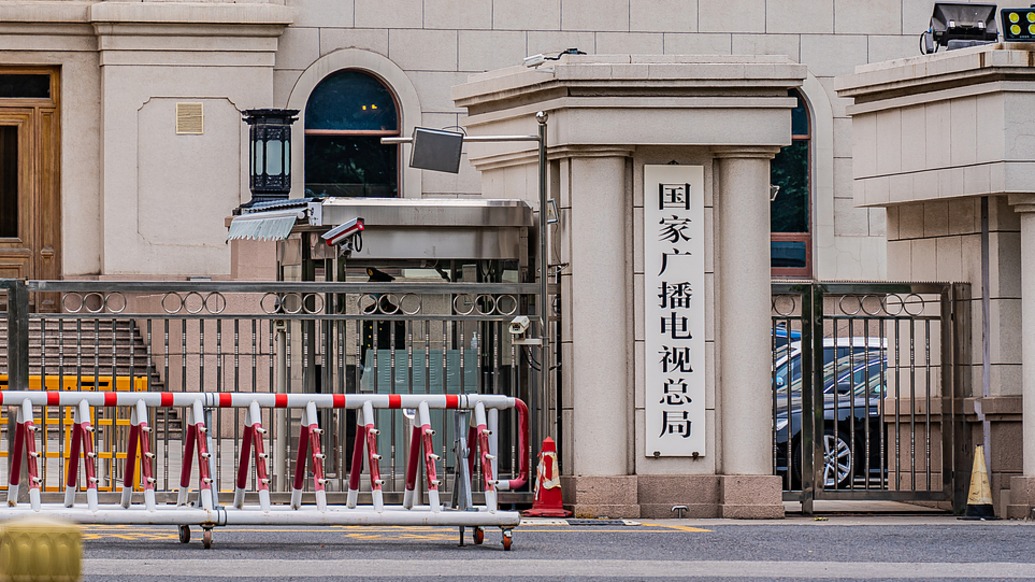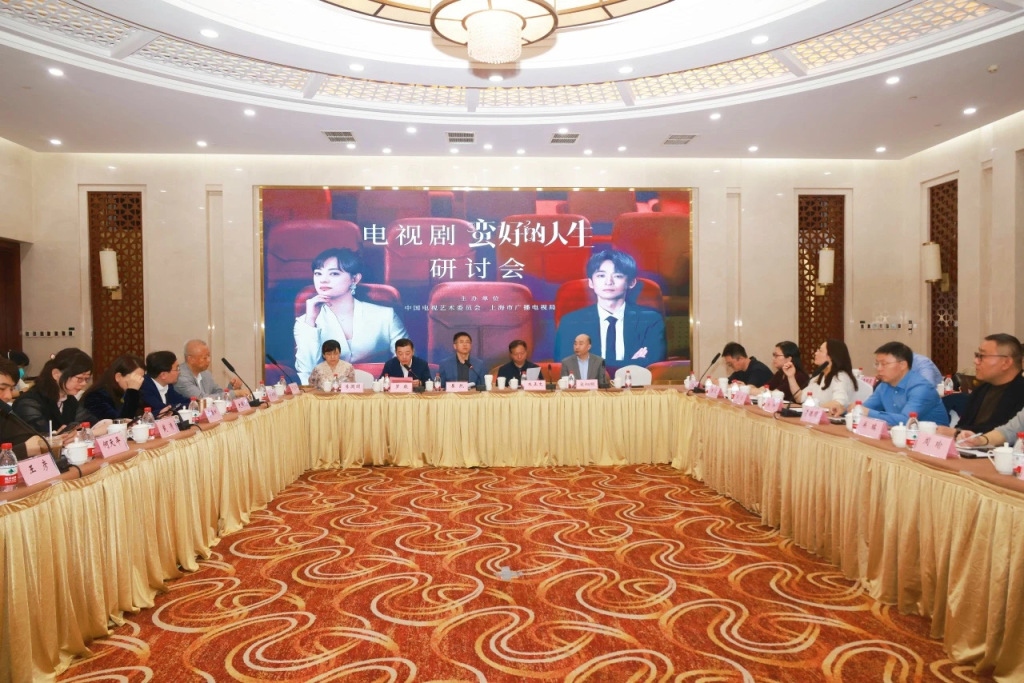
The television series The Blossoming Mountains has achieved not only high ratings and widespread acclaim since its debut but also secured the title of the highest-rated Chinese-language drama of the year with a Douban score of 9.4 (based on 128,000 ratings).
Historically, mainstream dramas have faced challenges of stereotyping, with characters lacking depth and plots feeling formulaic, resulting in a stiff viewing experience. However, recent works such as The Blossoming Mountains, The Great Road, City of Sunshine, and The People's Police have introduced groundbreaking innovations in narrative techniques and character development, garnering impressive accolades and success.
As an important artistic form for promoting core socialist values and conveying positive social energy, mainstream dramas have made remarkable progress and development in recent years, showcasing new ideas and possibilities in creating such themes and offering valuable experiences and insights for future productions.
On the new developments in mainstream themes, I would like to share some thoughts and observations. The following discussion will explore how to create compelling mainstream dramas from aspects such as thematic ideas, creative approaches, character prototypes, and moving details.
Timeliness: The Spirit of the Era in Mainstream Themes
When discussing mainstream themes, one cannot ignore the profundity and timeliness in their thematic expressions. Timeliness, in particular, is crucial to the creation of mainstream dramas. These dramas should closely align with contemporary themes and reflect the changes and developments of the times. For instance, The Awakening Era uses significant historical events such as the New Culture Movement, the May Fourth Movement, and the founding of the Communist Party of China as its backdrop, depicting the ideological awakening and fighting spirit of the people during that era, earning it a classic status among recent mainstream works.
Characters in mainstream themes should not only represent individuals but also symbolize the era. The creation of mainstream themes should seamlessly integrate character prototypes with their historical context, imbuing them with contemporary meaning and value. Through their stories, we can reflect the spirit of the time and societal progress, allowing audiences to better understand and resonate with the changing era. For example, in The Great Road, the stories of the young cyclists pursuing their dreams also highlight the development and changes in the Xinjiang region, as well as the fighting spirit of young people.

The Great Road still from the series
The Blossoming Mountains is also imbued with a strong sense of the era through its characters. Unlike the common depictions of "sacrifice" and "dedication" among women in traditional mainstream dramas, The Blossoming Mountains presents multi-dimensional, complex female characters. The protagonist, Zhang Guimei, not only possesses strong ideals and beliefs but also showcases a rich emotional world.
Screenwriter Yuan Zidan noted that Zhang Guimei's optimism, humor, and resilience allow her to transition from a "hero" archetype to a more relatable female character closer to everyday life. This work also enriches the relatively scarce market of educational-themed dramas, particularly in its focus on the education of girls from impoverished mountainous areas, demonstrating the show's uniqueness.
This shift indicates that mainstream dramas are expressing women's social roles and historical missions through new perspectives. Not only does this respond to contemporary societal demands for gender equality, but it also provides a new narrative template for Chinese mainstream films and television shows on a global scale.
Clearly, only by closely integrating the theme of the series with contemporary issues can it resonate with audiences, enhancing their understanding and appreciation of the spirit of the times.
Authenticity: Realism as the "Flagbearer"
In recent years, high-quality mainstream dramas have shown a common trait: a strong sense of authenticity that resonates with the lives of the people. Whether it is Mountain and Sea Feelings, My Altay, or the more recent City of Sunshine, they all authentically depict the lifestyles of the people, their genuine emotions, and growth processes. This authenticity allows audiences to empathize, connect, and follow along. The term "mainstream" no longer carries the heavy connotations of "greatness" and "glorious correctness" that it once did; rather, the focus on realism by creators in recent years has brought them great rewards.
For example, The Blossoming Mountains is crafted with great care. To genuinely portray Zhang Guimei's life and work, the production team conducted extensive research in Lijiang, Huaping, attempting to recreate the authentic scenes and atmosphere of the girls' high school. The creative team made multiple visits to Huaping Girls' High School, led by Zhang Guimei, collecting numerous real stories about students and teachers.
These stories were effectively incorporated into the series, significantly enhancing its authenticity and relatability. For instance, the growth story of the female student Gu Yu is a composite inspired by multiple real individuals. Initially dropping out of school and being forced by her father into marriage, Gu Yu returns to education through Zhang Guimei's inspiration and ultimately transforms her life. This narrative vividly represents the fates of countless girls from mountainous regions and highlights the critical role of education in turning their destinies around.

The Blossoming Mountains still from the series
To avoid sensationalism, Zhang Guimei herself requested that the production crew refrain from overly dramatizing the students' hardships and not exploit their personal lives as a gimmick. Screenwriter Yuan Zidan mentioned that they gathered numerous touching student stories but only proceeded with adaptation after receiving the students' consent. This respectful and non-dramatized approach allows viewers to experience the genuine emotions and life challenges faced by the characters, deeply moving them in the process.
Different mainstream dramas focus on different aspects of authenticity. For example, in historical-themed dramas, accurately restoring the historical backdrop is crucial. Elements such as the era's atmosphere, social conditions, and character clothing must be meticulously verified and thoughtfully designed to immerse viewers in the historical setting. For instance, The Awakening Era's depiction of street scenes in Beijing and the Peking University campus during the Republic of China period allows audiences to feel as if they have traveled back to that tumultuous era.
For contemporary-themed dramas, it is essential to realistically present modern societal scenes and people's living conditions, avoiding excessive beautification or exaggeration so that audiences can witness the true nature of life. For instance, the depiction of the natural beauty, cultural customs, and contemporary life in Lhasa in City of Sunshine provides viewers with a deeper understanding of Tibet, while the efforts to portray the daily lives of ethnic minorities in The Great Road allow audiences to better relate to the story. Even though the settings are distant and diverse, viewers from various regions, customs, and ethnicities can connect with the shared joys and sorrows through its authenticity.
Currently, contemporary realism has faced some neglect in the market, with the creative challenges, scrutiny risks, and high demands for production teams leading many producers to hesitate. Ironically, mainstream themes, once questioned by the market and industry, have now taken up the banner of realism.
Innovation: Bold Breakthroughs in Narrative Techniques
In recent years, mainstream themes have exhibited a trend of "abandoning grand narratives and instead embarking from the individual perspective to tell the stories of ordinary people." Many series use small, relatable narratives to reflect the shifts of the times and societal progress.
For example, Mountain and Sea Feelings showcases the hardships and struggles of the people in the Ningxia Western Sea Hollow area in their journey toward poverty alleviation, illustrating the remarkable achievements of national poverty relief policies. Our Decade utilizes multiple episodic stories to highlight the journeys and accomplishments of ordinary individuals across various fields over the past decade. Even the drama Meritorious Figures, which focuses on "meritorious figures," emphasizes their ordinary sides, allowing the average viewer to empathize more closely with these "heroes" and believe in their stories.

Our Decade still from the series
Moreover, in recent years, there have been numerous innovative techniques in the scriptwriting of mainstream themes. For instance, in terms of narrative structure, The Blossoming Mountains moves beyond a simple linear biography model, incorporating more ensemble storytelling, placing Zhang Guimei's story within the context of interactions with students, teachers, parents, and department leaders, presenting a more complex and nuanced social reality. The series utilizes multiple details to show how students awaken and grow under Zhang Guimei's guidance, enhancing viewers' emotional engagement. Additionally, screenwriter Yuan Zidan described the series as adopting an "entrepreneurial drama" narrative style, viewing Zhang Guimei's establishment of the girls' school as a challenging yet meaningful "entrepreneurial journey." This unique narrative approach not only enhances the series' watchability but also makes it easier for audiences to accept and understand the spirit of struggle portrayed.
Furthermore, The Awakening Era integrates light and everyday elements into the depiction of revolutionary ancestors, adding richness to the narrative. This dramatization does not diminish the strength of the mainstream theme; rather, it makes the characters more vibrant and relatable, contrasting their sacrifices with moments of beauty in daily life, which further moves the audience and enhances appreciation for their ordinary experiences.
Wen Cang Mang pioneers poetic narrative within mainstream themes, presenting the romantic sentiment of revolutionaries through visual and auditory language, transforming the traditionally "realistic" mainstream themes into a unique style characterized by "imagery" and "romanticism," distinguishing itself remarkably in several mainstream creations, making it a worthy reference.

Wen Cang Mang still from the series
In recent years, the notable advancements made in mainstream dramas not only earned audience recognition and positive acclaim but also warrant further reflection and study from the industry. As various commercial genre narratives reach a bottleneck and the market response cools, could mainstream dramas offer more insights, emphasizing timeliness, authenticity, and innovation as effective tools for gaining audience approval?
Looking ahead, mainstream themes may continue to deepen their connection with the times, becoming more sensitive in capturing the pulse of contemporary society and reflecting new dynamics and issues in societal development. In terms of authenticity, they may explore more diverse presentation styles to meet audience demands for deeper and more detailed portrayals across different subjects.
Recently, a netizen shared a story about telling Zhang Guimei's story in an IELTS exam, which moved the examiner to tears and led to a high score—like a successful export of Eastern mainstream values. Truth, goodness, and beauty will always resonate as global narrative themes; perhaps with the global resurgence of conservative values, audiences worldwide will shift their focus from TikTok videos to domestic mainstream dramas, making it no longer a dream for outstanding series like The Blossoming Mountains to reach international audiences.


